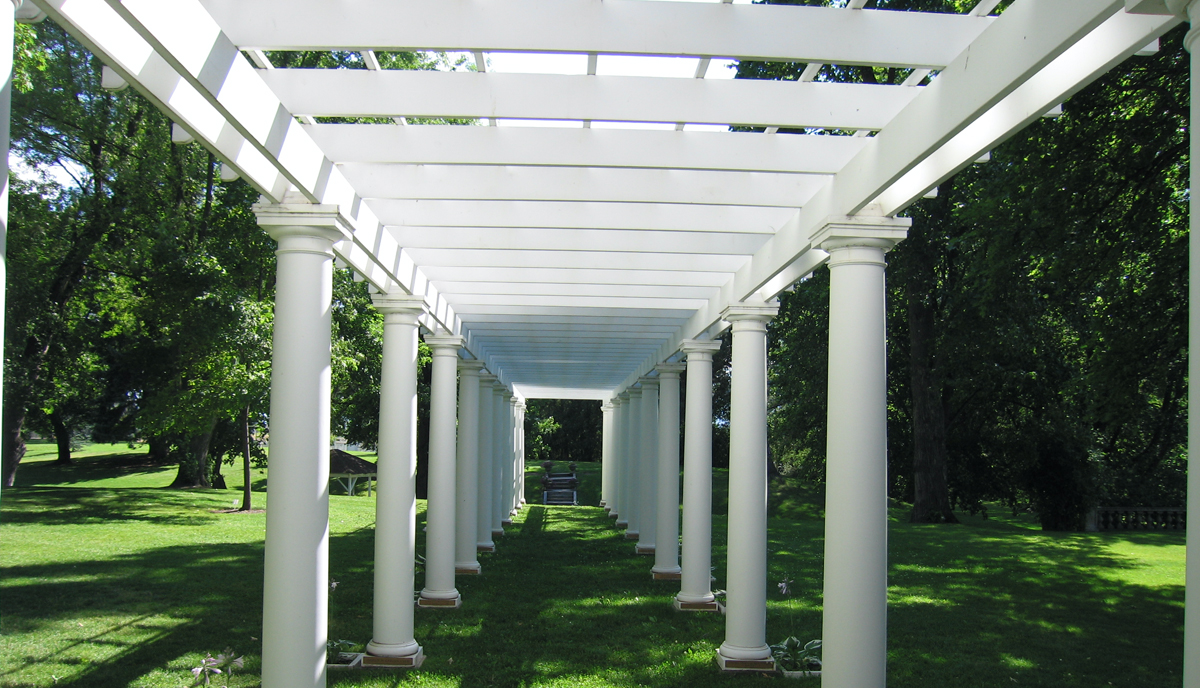Last July, my wife and I took a three-week motorhome trip from Oregon to South Dakota and back attending two family reunions amongst our travels. We stopped a few days near Glacier National Park in NW Montana where huckleberries are prevalent. We went looking for something that was made with huckleberries and found candy, jam, and popcorn in a small store. When I reached the cash register to pay for our items, I saw a plaque on the wall with a profound poem ascribed to the 14th Dali Lama.
I loved the poem so much that I took a picture of it to share with you. Once we arrived home, I researched the poem and found numerous versions of this poem in various lengths. The one on the wall I took a picture of was one of the shorter versions. I also discovered that the origin was not known, but it was ascribed to several different authors. Most likely, it was an article from Dr. Bob Moorehead based on some sayings of The Dali Lama. But I can’t be sure.
After reading several versions, I chose one of the longer versions to present to you. My hope is this poem will change your life, your medical practice, and the way you look at things in general. Enjoy!
The paradox of our time in history is that:
We have taller buildings,
but shorter tempers;
Wider freeways,
but narrower viewpoints.
We spend more,
but have less.
We buy more,
but enjoy less.
We have bigger houses,
but smaller families;
More conveniences,
but less time.
We have more degrees,
but less sense;
More knowledge,
but less judgment;
More experts,
yet more problems;
More medicine,
but less wellness.
We drink too much, smoke too much, spend too recklessly;
Laugh too little, drive too fast, get angry too quickly;
Stay up too late, get up too tired,
Read too little, watch TV too much,
And pray too seldom.
We have multiplied our possessions,
but reduced our values.
We talk too much, love too seldom, and hate too often.
We’ve learned how to make a living,
but not a life.
We’ve added years to life,
not life to years.
We’ve been all the way to the moon and back,
but have trouble crossing the street to meet a new neighbor.
We’ve conquered outer space,
but not inner space.
We’ve done larger things,
but not better things.
We’ve cleaned up the air,
but polluted the soul.
We’ve conquered the atom,
but not our prejudice.
We write more,
but learn less.
We plan more,
but accomplish less.
We’ve learned to rush,
but not to wait.
We have higher incomes,
but lower morals.
We have more food,
but less appeasement.
We build more computers to hold more information,
To produce more copies than ever,
but we communicate less and less.
We’ve become long on quantity,
but short on quality.
These are the times of fast foods
and slow digestion;
Big men,
and small character;
Steep profits,
and shallow relationships.
These are the times of world peace,
but domestic violence;
More leisure,
but less fun;
More kinds of food,
but less nutrition.
These are days of two incomes,
but more divorce;
Fancier houses,
but broken homes.
These are the days of quick trips,
Disposable diapers, cartridge living,
Throw-away morality, one-night stands, overweight bodies,
And pills that do everything from cheer, to quiet, to kill.
It is a time when there is much in the show window,
and nothing in the stockroom.
A time when technology has brought this letter to you,
And a time when you can choose either to make a difference,
or to just hit delete…
I was thinking about a few more current lines for the poem:
This is an era of philanthropy,
yet we won’t get a vaccine to protect our neighbor.
We can teach a dog not to pee on the carpet,
yet we cannot teach adults to cover their nose with a mask.
This poem also reminds me of the song, Everybody Said, by the singing group Acappella, which my gospel quartet used to sing. Here is one of the verses:
Everybody said that anybody could do,
the important things somebody should do.
Everybody knows that anybody could do,
all the good things that nobody did.
I write a lot about Financial Success, but finance isn’t everything, even though it seems that way when we are low on cash. Finance is just a part of life’s big picture. Our money gives us the tools to do great things. The question is, will we do any of those great things, or will we merely dream of doing them someday? Will we talk or will we act?
Make today your someday. Be more, do more and teach more. And please, each year take one thing off your bucket list and move it to your calendar. Don’t save everything for someday, as someday may never come.
Remember the golden rule from the Sermon on the Mount:
Do unto others as you would have them do unto you.
Some will say, “But it’s not that simple.”
I say, it is that simple.
Take care of yourself, your family and each other.
Life is short, don’t waste it.






Thanks for sharing.
Love it.
Deep, Brother. Very Deep.
Great poem and comments, all the ills in our contemporary and affluent ( at least relevant to most readers of this article ) society . Buddhism is not a religion rather a mind exercise, which teaches inner insights and wisdom, thus allows the reader to ignore the common vulgarities in our lives.